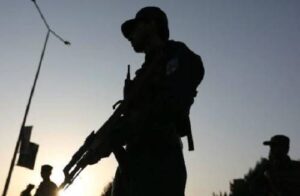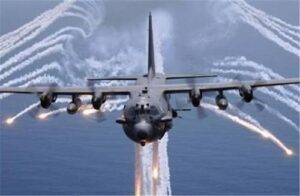KANDAHAR AIRFIELD (SW): NATO’s Resolute Support Program (RSP) in Afghanistan has expressed optimism that basis and related facilities could provide the foundation Afghanistan needs to meet President Ashraf Ghani’s vision of becoming a major economic hub for central Asia in the next 20 years.
To ensure NATO forces’ basis and facilities are used to boost the economic capacity of Afghanistan, a group of advisers from Combined Security Transition Command-Afghanistan and the U.S. Department of Commerce are working collaboratively with provincial and national leaders to assist in developing an effective transition plan, RSP said on Wednesday.
“The military or the government does not need all of these assets, so we, as the part of the Commerce Department, in conjunction with CSTC-A, have been asked to do commercial assessments of key bases in Afghanistan to determine their commercial viability to attract both local and international investors,” said Walter Koenig, the Commercial Service Officer for the Afghanistan Investment and Reconstruction Task Force.
A news release by the NATO’s Resolute Support Program (RSP) said the assets on each base vary from location to location, and can be used by a variety of different entities, from agriculture to mechanical companies to military specific training facilities.
“The benefits are the private sector gets the much needed infrastructure at a very low initial cost, all of these assets are able to be retained and used to enable further investment,” said Koenig.
The transition of such large facilities has three pillars: military, commercial and political, both on the coalition and Afghan side, it said. Representatives from each pillar in Afghanistan are collaborating with coalition military and commerce department representatives to make this undertaking successful for the country, the statement added.
According to the RSP, on the military side, CSTC-A engineers are working with their Afghan partners to determine what assets are available and might be of use to the military or potential commercial companies.
“Our role as the military is to re-shape and re-size Kandahar Airfield in its entirety to meet the needs so the lads can actually sell it as a going asset,” said Australian Maj. Damian Maher, the Kandahar Airfield De-Scope Engineer. “We’re flattening unstable buildings; we’re re-designing the camp so we can hand it off to the Government of Afghanistan as a better product. We’re going to hand over more than 1,000 buildings to Afghanistan that have air conditioning, are climate controlled, positive pressure buildings that they can use for economic development.”
Initial assessments
The advisers, in conjunction with provincial government leaders are looking at Kandahar, Mazar-e-Sharif and Herat to assess their commercial viability.
In addition to the coalition advisers, the group consisted of approximately 10 local scholars, who will make up the Kandahar Airfield Commission. The commission, which is still in its startup stage, will oversee the development within the base and manage which companies will be able to use the facilities.
During the tour, they visited two cold storage warehouses, a waste water treatment facility, and large storage warehouses, among other locations that could be of use to the local government.
“This is good because we can see what capacity is available here and the type of equipment,” said Mohammed Nasim Sohail, who is part of the faculty of Agriculture at Kandahar University. “We can look at how we can integrate them into different organizations, and how we can prepare a very good development plan to run this base, so I’m grateful we are here today.”
The use of the cold storage facilities, for example, has the potential to even out year-round market prices for fresh produce, and further stabilize the economy.
“This has to be an Afghan led effort, we’re here to facilitate, to help and to promote, but this has got to be and will be ultimately Afghan led, Afghan managed and Afghan implemented,” said Koenig.
“A generic office building will support a number of businesses, but each base a set of positive commercial attributes and they’re not all the same. Kandahar is very interesting because it is an agricultural zone, it is a potential logistics hub, it is a potential food processing hub, a potential light manufacturing hub, there’s a lot of different businesses that could find themselves in here very comfortably”, he stressed.
If done correctly, and with the necessary foresight and overhead management, these facilities could provide the foundation Afghanistan needs to meet Afghan President Ashraf Ghani’s vision of becoming a major economic hub for central Asia in the next 20 years, the RSP predicted.
END





